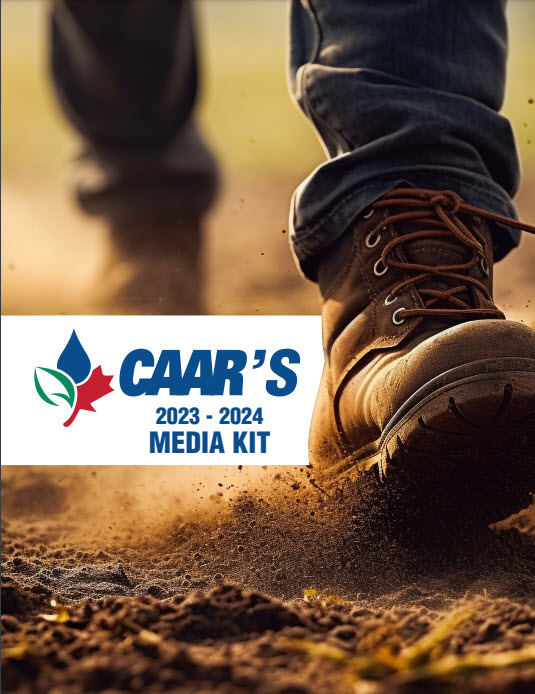Following consultation with sector stakeholders through the Western Standards Committee and Eastern Standards Committee, the Canadian Grain Commission is implementing grading changes that will better meet the needs of the agriculture sector in Canada and grain buyers around the world.
Below are the highlights of some of the upcoming changes, which will take effect on August 1, 2023.
“The Canadian Grain Commission is pleased to implement these science-based updates to our Official Grain Grading Guide following extensive discussions with the sector. These changes support modernization of our grading system and will help grow the Canadian grain sector and maintain Canada’s reputation for high quality grain, says Doug Chorney, Chief Commissioner, Canada Grain Commission.”
Severely sprouted definition for western wheats
The definition of the severely sprouted grading factor for western classes of wheat in the Official Grain Grading Guide is being updated after research was completed on the impacts to end-use quality.
The research confirmed that sprouted wheat where the sprout was partially broken off the kernel had similar end-use qualities as regular sprouted wheat. That portion of the definition is being removed from the severely sprouted grading factor definition.
Test weight and total foreign material alignment for some wheat classes
As part of the Canadian Grain Commission’s grain grading modernization initiative, the primary and export tolerances for test weight and total foreign material are being aligned in most of the classes of western wheat where they differed. The test weight and total foreign material primary and export tolerances will be aligned to the export tolerances for all grades of the following classes of wheat:
- Canada Western Red Spring (CWRS)
- Canada Western Hard White Spring (CWHWS)
- Canada Western Extra Strong (CWES)
- Canada Western Soft White Spring (CWSWS)
- Canada Northern Hard Red (CNHR)
The total foreign material primary and export tolerances for Canada Western Amber Durum (CWAD) will also be aligned to the export tolerances for all grades.
Other updates and clarifications
The Canadian Grain Commission is also making several other changes to definitions in the Official Grain Grading Guide, including updates to:
- the determination of dockage process in the canola chapter to clarify the process and the different sized sieves that should be used after concerns were raised by producers about inconsistencies in the process used at delivery
- the definition of “processed sample” in all chapters to address issues with samples submitted to the Canadian Grain Commission for official grades where dockage was already removed
- the composition of dockage to include insect parts and the definition for insect parts in the lentils, beans, chickpeas and fababeans chapters
- the composition of dockage to include the percentage of hulled seeds in dockage and the definition of foreign material and hulled seeds in the canary seed chapter
For more information, visit the Canadian Grains Commission website.
Please share any concerns or comments with CAAR Executive Director Mitch Rezansoff at 204-989-9303.
Related Articles
- Precision Technology for Fertilizer Mixing & Blending Precision agriculture is everywhere, even in fertilizer mixing and blending systems, where automated systems and software-based systems are quickly becoming a crucial element to the industry. (Sponsored Content) N...
- Canadian Foodgrains Bank and Viterra fighting against hunger Canadian Foodgrains Bank, together with Viterra and its volunteer farmers, marks the eighth year of their joint efforts to tackle global hunger, utilizing farmland across Saskatchewan and Alberta. As reported on F...
- Green boost - pulp mill waste transforms soil health and cuts emissions University of Alberta study reveals pulp mill waste enhances soil fertility and reduces greenhouse gases. Over two years, researchers experimented with hybrid poplar tree plantations in northern Alberta, discoveri...
- Potential El Niño Impact on 2024 Following three consecutive years of La Niña, the El Niño-Southern Oscillation (ENSO) is currently in the El Niño phase, according to NOAA. The ongoing El Niño is forecast to be an intense event, reaching its maxi...
- Will South American crops survive? Even with the flag of Brazil covered in soybeans, the dryness experienced within the Amazon rainforest is having a negative affect on the country’s corn and soy yield. By Colin McNaughton, Farms.com Risk Managemen...
 How to resolve AdBlock issue?
How to resolve AdBlock issue? 


Join the discussion...
You must be logged in as a CAAR member to comment.
Report
My comments